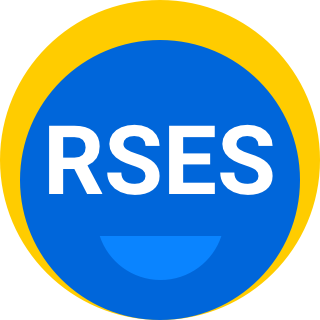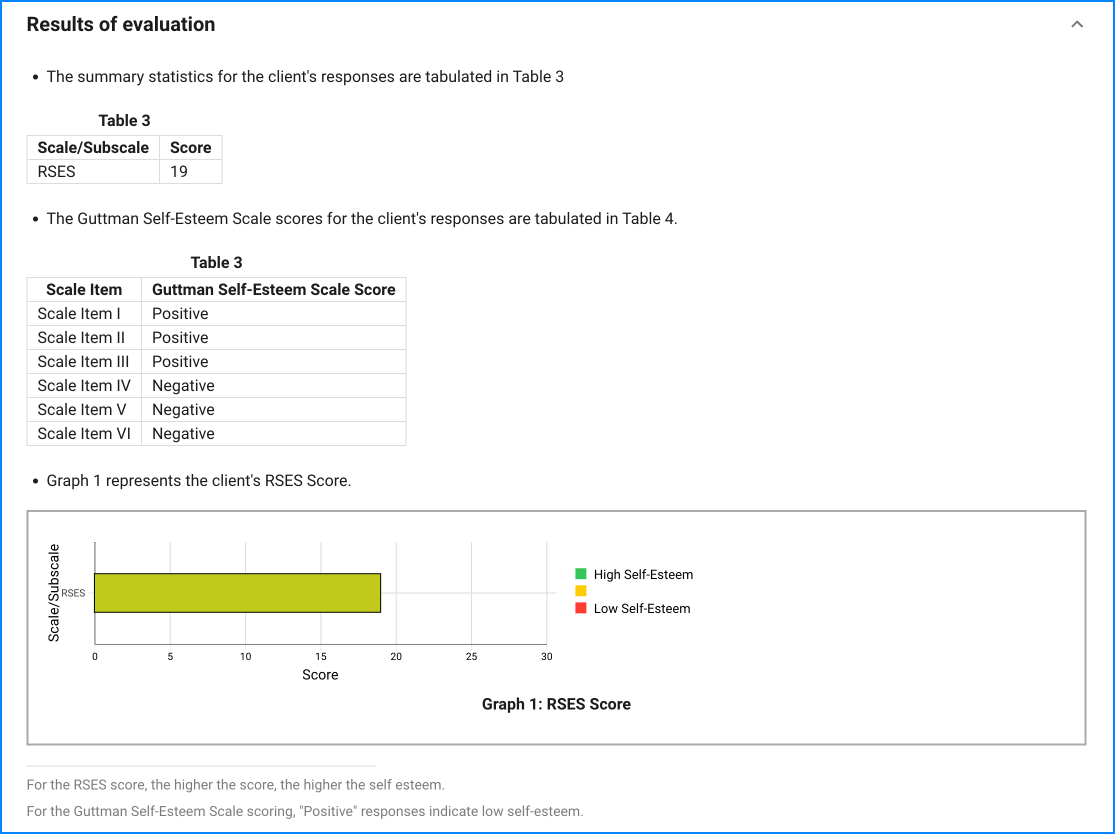Scores are calculated as follows:
The Rosenberg Self-Esteem Scale (RSES) was developed by Morris Rosenberg in 1965. It is a 10-item self-report measure of global self-esteem. Self-esteem is a positive or negative attitude towards the self. High self-esteem means that the individual respects himself, considers himself worthy; he does not necessarily consider himself better than others, but he definitely does not consider himself worse; he does not feel that he is the ultimate in perfection but, on the contrary, recognizes his limitations and expects to grow and improve. Low self-esteem, on the other hand, implies self rejection, self dissatisfaction, self contempt. The individual lacks respect for the self he observes. The self picture is disagreeable, and he wishes it were otherwise.



